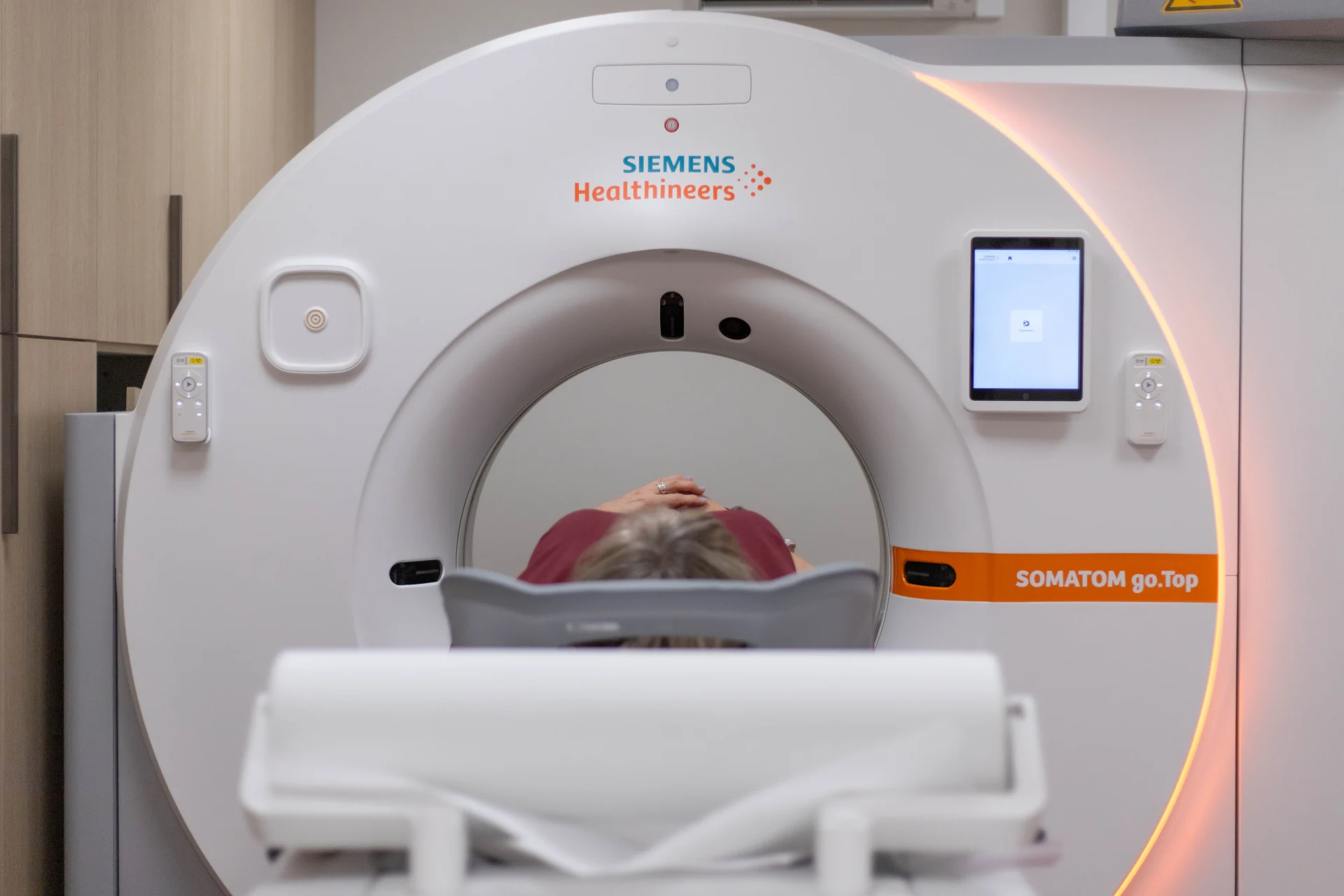A Heart CT scan is a specialised imaging procedure used to assess the structure and function of the heart, including the coronary arteries. This non-invasive test helps detect early signs of heart disease, measure calcium build-up in the arteries, and identify conditions that may increase the risk of heart attacks.
Victorian Imaging Specialists offers high-resolution cardiac CT imaging using state-of-the-art low-dose technology to provide precise and reliable results. This scan plays a crucial role in heart health assessments, allowing doctors to make informed decisions about preventative care and treatment options.
Common Uses of Heart CT Scanning:
- Coronary Artery Calcium Scoring to evaluate heart disease risk
- Detection of narrowed or blocked arteries that could lead to heart attacks
- Assessment of heart structure and function for congenital or acquired conditions
- Pre-surgical evaluation before certain heart procedures
- Monitoring the effectiveness of treatments for heart-related conditions
What to Expect During the Procedure:
Patients will lie on a scanning table that moves through the CT machine. Electrodes may be placed on the chest to monitor the heart’s rhythm during the scan. If required, a contrast dye will be injected to enhance visibility of the coronary arteries. The scan itself takes just a few minutes, though the entire appointment may last up to 30 minutes, including preparation. Patients may be asked to hold their breath briefly during image capture to improve scan quality.
Preparation Guidelines:
- Patients should avoid caffeine and smoking for at least four hours before the scan, as these can affect heart rate.
- Some medications may need to be adjusted before the procedure; patients should consult their doctor beforehand.
- Comfortable, loose-fitting clothing is recommended, and jewellery or metal objects should be removed.
- If a contrast dye is required, patients should notify staff of any known allergies or kidney conditions.
Safety Information:
A Heart CT scan is a safe and effective way to assess cardiovascular health. While it involves a low dose of radiation, it is carefully managed to minimise exposure while ensuring high-quality images. The use of contrast dye is safe for most patients, but precautions are taken for those with allergies or kidney concerns.
Results and Next Steps:
The scan results are analysed by a specialist radiologist and sent to the referring doctor. If calcium deposits or arterial narrowing are detected, the doctor may recommend lifestyle changes, medication, or further tests to help reduce the risk of heart-related complications. Patients should schedule a follow-up appointment with their doctor to discuss the findings and any recommended treatment.
For more information or to book a Heart CT scan, please contact your nearest VIS clinic.
